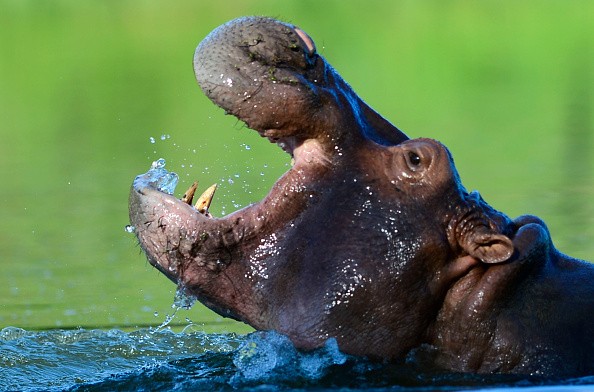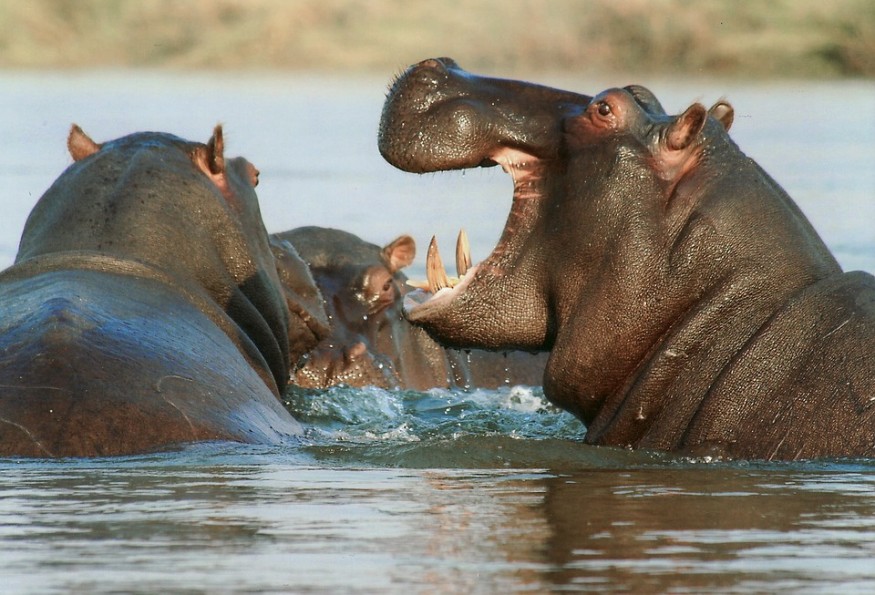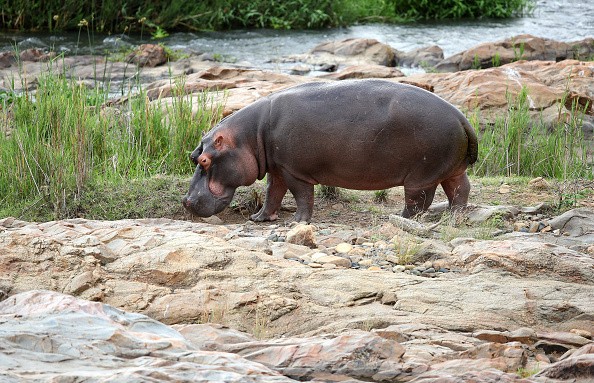Covid-19 has been found in two hippos at a zoo in Antwerp, Belgium, in what is thought to be the first case of infection in the species.

According to a zoo press statement, the hippos Imani and Hermien have displayed no symptoms "other than runny noses."
Hippos Testing Positive

According to the press release, the infection's origins are unclear; their caregivers have displayed no signs of Covid-19 and have all tested negative for the virus.
Imani, 14, and Hermien, 41, are being held in seclusion for the time being and cannot be seen by tourists, according to the zoo.
"To my knowledge, this is the first known infection in this species; this virus has generally been documented in big apes and felines across the world," said the zoo's veterinarian Francis Vercammen, who handled the coronavirus testing.
According to the US Centers for Disease Control and Prevention, Covid-19 infections in zoo animals and pets have been documented worldwide, including in large cats, monkeys, ferrets, and minks.
Three snow leopards died of virus-related issues at a zoo in Nebraska last month.
Related Article : "Worst Variant Yet"- Emerging Covid Variant From South Africa Raises Warning in UK
Covid on Animals

The most common animal species affected by coronavirus are companion animals, particularly cats and dogs. While the danger of human-to-human transmission is minimal, the CDC has warned that individuals can transfer coronavirus to pets.
Coronaviruses are a family of viruses that include a diverse range of viruses. Human colds are caused by some coronaviruses, while others infect animals, camels, and bats. Coronaviruses that only infect animals, such as canine and feline coronaviruses, are not transmitted to humans.
Coronaviruses are zoonotic, meaning they can spread from animals to humans. According to detailed examinations, SARS-CoV was transmitted from civet cats to humans, and MERS-CoV was transmitted from dromedary camels to humans. Several coronaviruses that have not yet infected people are circulating in animals.
Animal to Human Infection and Vice Versa
Fortunately, animals do not appear to play a substantial role in propagating SARS-CoV-2, the virus that causes COVID-19, to humans at present. More research is needed to determine whether and how SARS-CoV-2 affects different species.
Some animal-borne coronaviruses can infect humans and propagate between them, but this is uncommon. This is what happened with SARS-CoV-2, a virus most likely transmitted by bats.
There have been reports of animals infected with SARS-CoV-2 all around the world. Most of these animals acquired infection by coming into touch with COVID-19-infected people, such as their owners, caregivers, or others close. Researchers don't yet know all of the creatures susceptible to infection.
Avoiding Infection
Regular hand washing, covering mouth and nose while coughing or sneezing, and adequately cooking meat and eggs are all standard suggestions for preventing infection spread. Avoid close contact with anyone coughing or sneezing and has respiratory symptoms.
For more health and medicine related news, don't forget to follow Nature World News!
© 2025 NatureWorldNews.com All rights reserved. Do not reproduce without permission.





